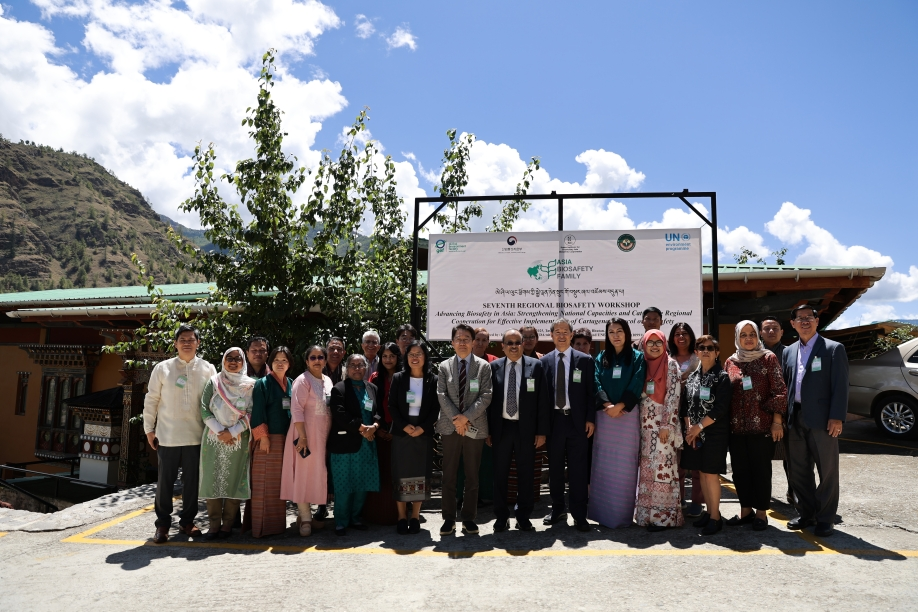
Seventh Regional Biosafety Workshop Commences in Paro, Bhutan
Paro, Bhutan – 27 May 2025 – The Seventh Regional Biosafety Workshop, on the theme ‘Advancing Biosafety in Asia: Strengthening National Capacities and Catalyzing Regional Cooperation for Effective Implementation of the Cartagena Protocol on Biosafety,’ commenced today in Paro, Bhutan.
The four-day workshop is a collaborative effort, organized by the Korea Institute for Promoting Asia Biosafety Cooperation (KIPABiC) and co-hosted by the Bhutan Food and Drug Authority (BFDA), Ministry of Health. Support for this regional event is provided by the Ministry of Trade, Industry and Energy (MoTIE) of the Republic of Korea and the United Nations Environment Programme (UNEP)-Global Environment Facility (GEF) multi-country biosafety Project (10991).
Bringing together 27 participants comprising government representatives from thirteen countries across Asia, alongside regional biosafety experts and stakeholders, the workshop aims to strengthen technical expertise, enhance collaborative networks, and accelerate the effective implementation of the Cartagena Protocol on Biosafety (CPB) throughout the region. The primary objective is to encourage regional dialogue, facilitate the sharing of expertise, and formulate collaborative joint initiatives and sustainable action plans that promote regional ownership and long-term collaboration in biosafety.
The opening session featured addresses from key officials representing UNEP, KIPABiC, MoTIE and the BFDA.
Representing the host country, in the opening remarks, Ms. Gyem Bidha, the Director of the Bhutan Food and Drug Authority shared Bhutan’s journey in biosafety, from the ratification of the Cartagena Protocol in 2002 to the implementation of a precautionary GMO policy under the 2015 Biosafety Act. She highlighted Bhutan’s dedication to science-based regulation and shared an update on the recent revision of national guidelines for GM food and feed risk assessment.
In his opening address, Dr. Homin Jang, the Director of KIPABIC emphasized the critical balance between leveraging the benefits of biotechnology and ensuring its safety, urging a renewed commitment to regional cooperation in the face of global challenges and complexities. Dr. Chung Won Park, Chairman of KIPABIC reiterated the institute’s commitment to facilitating partnerships and pledged to further support active collaboration with national, regional and global partners.
Dr. Balakrishna Pisupati, Head, UNEP Country Office, India shared that Cartagena Protocol is key to safely managing modern biotechnology, protecting both biodiversity and human health. Highlighting Asia’s ecological and technological diversity, Dr. Balakrishna emphasized the importance of regional collaboration and adapting regulatory systems to emerging technologies. He expressed UNEP’s appreciation for participating countries and called for continued cooperation to ensure a safe, innovative, and biodiverse future.
The workshop is made possible through the generous funding from MoTIE, the support of the UNEP-GEF Project, and the dedicated collaboration of all regional and international partners. The rich biodiversity and strong environmental ethos of Bhutan provide a significant and fitting backdrop for this timely and collaborative regional endeavor.
Bhutan Food and Drug Authority